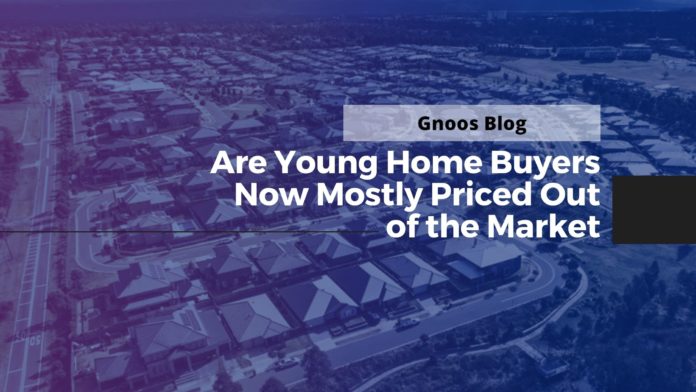Soaring property prices have fuelled concerns younger Australians will be shut out of the housing market for good, with 60 percent of voters saying are young home buyers in their area will never be able to buy their own homes. A majority of Australians believe record prices will be bad for the next generation and 40 percent think the trend is bad for the country, even though many feel their households could prosper.
The Survey
Only 18 percent of voters think many young people in their area will be able to buy their own homes, according to a new survey that challenges government assurances about a boost to confidence from higher prices. The exclusive survey, conducted for The Sydney Morning Herald and The Age by research company Resolve Strategic, heard from voters who had attended housing auctions this year and came away saying people were in shock from the surge in prices.
With Melbourne and Canberra on track to join Sydney with median house prices over the $1 million mark in the coming months, the Reserve Bank and other regulators are canvassing when to tighten lending standards to cool the market competitive rates for first home buyers. The federal government has emphasised the gains for households from the rising property prices, although it acknowledges the barriers for those who are young home buyers trying to get into the market.
The government points to its $680 million HomeBuilder grants and its loan guarantee scheme, allowing families to apply for a mortgage with a deposit as low as 5 percent of the home value, as ways to address housing affordability. But the survey shows a majority of Australians believe high prices will prevent young people from getting a chance to own their own homes.
Rived The Market
According to SMH office manager Sarah Ward, 26, and her partner Milan Atlagic, a 29-year-old fire door specialist, are trying to buy their first apartment together in Sydney’s rising property market. The couple, who are renting in Bondi, have been looking in the eastern suburbs and inner west for a one or two-bedroom apartment for the past six months.
Domain data shows the median price of a one-bedroom apartment in Coogee is $840,000, but Ward says every apartment they have looked at has sold for at least $100,000 more than that, and well above the price guide provided by property agents. Reserve Bank analysis shows that in 2013 it took an average of six years for a typical Sydney household in the 25-34-year-old age bracket to save a deposit for a median-priced dwelling in the city. But that has now climbed to nine years across all capital cities that average has increased from five to seven years.
The politics of housing affordability is back centre stage thanks to the pandemic property boom. Premier Dominic Perrottet says it will be a real focus for his government. His ambitious proposal to replace stamp duty with an annual property tax promises to reduce the upfront cost of purchasing a home, but there is still no indication when the changes will be introduced.
“We are facing a challenge when it comes to generational equity where many young people today cannot get the keys to their very first home,” Perrottet said on the day he became premier earlier this month. “We must ensure that generations that come after us have greater opportunity and prosperity than we have, and to do that reform is key.”
It influences policies that affect supply, especially planning, but the federal government is responsible for many of the tax settings which affect housing including negative gearing and capital gains tax. A federal parliamentary inquiry into housing affordability, launched in August, suggests there is no clear consensus on the best ways to tackle Australia’s housing affordability challenge. The bank of solo mums and dads, some submissions to the inquiry focus on the way property is taxed, some advocate for more social housing, while others emphasise the need to overhaul planning rules so the supply of housing in well-located neighborhoods can increase.
Last month an IMF review on the Australian economy warned that “surging housing prices raise concerns about affordability and financial stability” while an OECD report linked declining housing affordability to growing wealth inequality. The IMF and OECD both blamed restrictive planning rules for constraining housing supply and suggested the Commonwealth and state governments should provide financial incentives for local governments to streamline zoning regulations in a bid to increase the supply of housing in desirable locations.
“It’s that politics that has led governments of both stripes over the past 30 years to avoid policies that would make the biggest difference, and instead we’ve got policies that sound good but don’t make much difference or are even counterproductive.”
Sydney Housing Market Updates | CoreLogic Australia














